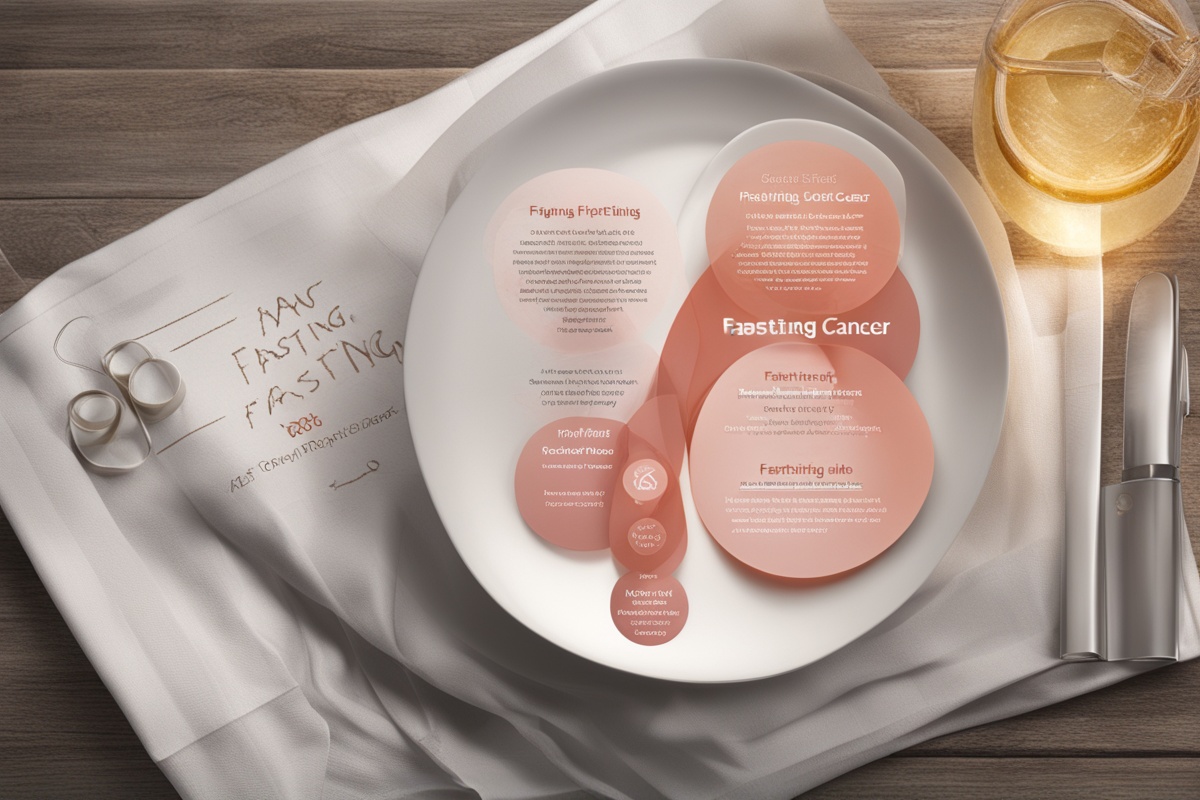Hey there, health enthusiasts! If you’ve been diving into the world of wellness, you’ve likely heard about the incredible benefits of health fasting. From weight loss to improved mental clarity, fasting has become a go-to strategy for many. But did you know that researchers are now exploring a fascinating connection between fasting and cancer? This isn’t just about shedding a few pounds—there’s growing evidence suggesting that fasting might play a role in cancer prevention and even treatment. In this deep dive, we’ll unpack the science, share practical tips for incorporating fasting into your life, and discuss how it might influence cancer outcomes. Let’s explore this intriguing intersection of diet and disease together!
What Is Health Fasting, and How Does It Work?
When we talk about health fasting, we’re referring to the intentional practice of abstaining from food for specific periods to promote wellness. This isn’t starvation—it’s a controlled approach to eating that can range from intermittent fasting (like the 16:8 method, where you fast for 16 hours and eat during an 8-hour window) to prolonged fasts lasting several days. The idea is to give your body a break from constant digestion, allowing it to focus on repair and regeneration. During fasting, your body shifts into a state called ketosis, where it burns fat for energy instead of glucose. This metabolic switch is at the heart of many fasting benefits, and it’s also where the cancer connection starts to emerge. Studies suggest that this change in energy use might create an environment less favorable for cancer cell growth (Valter Longo & Mattson, 2014).
The Science Behind Fasting and Cancer Prevention
Let’s get into the nitty-gritty. Cancer cells thrive on glucose—they’re like greedy little monsters gobbling up sugar to fuel their rapid growth. When you fast, your blood sugar levels drop, and your body produces less insulin, a hormone that can promote cell growth, including cancerous ones. Research shows that fasting may reduce the risk factors associated with cancer by lowering inflammation and oxidative stress, both of which can damage DNA and lead to mutations (Harvie & Howell, 2017). One study even found that fasting-mimicking diets—low-calorie plans that trick the body into a fasting state—could slow tumor progression in animal models by stressing cancer cells while protecting healthy ones (Brandhorst et al., 2015). While human studies are still ongoing, these early findings hint at fasting’s potential as a preventative tool in the fight against cancer.
Can Fasting Support Cancer Treatment?
Now, here’s where things get even more exciting. Beyond prevention, fasting might enhance the effectiveness of cancer treatments like chemotherapy and radiation. How? When you fast, healthy cells enter a protective mode, slowing down their activity to conserve energy. Cancer cells, on the other hand, don’t get the memo—they keep growing recklessly, making them more vulnerable to treatments. This concept, called “differential stress resistance,” suggests that fasting could make therapies more targeted and less toxic to the body (Rafaghello et al., 2008). Some clinical trials have shown that patients who fasted before chemotherapy experienced fewer side effects like nausea and fatigue (Safdie et al., 2009). However, it’s crucial to note that fasting during treatment isn’t for everyone—it must be done under medical supervision to avoid risks like malnutrition.
Types of Fasting to Consider for Health Benefits
Not all fasting is created equal, and if you’re curious about using health fasting as part of a cancer-conscious lifestyle, it’s worth exploring the different approaches. Each type has its own benefits and challenges, and what works for one person might not suit another. Here are a few popular fasting methods that have been studied for their potential health impacts:
- Intermittent Fasting (IF): Alternating between fasting and eating windows, like 16:8 or 5:2 (fasting two days a week). It’s beginner-friendly and may help with metabolic health.
- Prolonged Fasting: Abstaining from food for 48–72 hours or more. This is often done with water or broth and has shown promise in preclinical cancer studies.
- Fasting-Mimicking Diet (FMD): A low-calorie, plant-based plan lasting 5 days, designed to mimic fasting’s effects without total food restriction (Longo et al., 2016).
- Time-Restricted Eating (TRE): Limiting food intake to a specific time window each day, which can reduce insulin levels and inflammation over time.
Practical Tips for Starting a Fasting Routine Safely
Before you jump into fasting, especially with a focus on cancer prevention or support, there are some ground rules to follow. Fasting can be powerful, but it’s not a one-size-fits-all solution, and doing it wrong could do more harm than good—especially if you’re dealing with a serious condition like cancer. Here are some actionable tips to help you start a health fasting practice safely:
- Consult Your Doctor: Always talk to a healthcare provider, especially if you have cancer or are undergoing treatment. Fasting can interfere with medications or nutrient needs.
- Start Small: If you’re new to fasting, begin with a gentle 12:12 intermittent fasting schedule before progressing to longer fasts.
- Stay Hydrated: Drink plenty of water during fasting periods to avoid dehydration, which can worsen fatigue or other symptoms.
- Listen to Your Body: If you feel dizzy, weak, or unwell, break your fast. Health comes first, not sticking to a rigid plan.
- Break Fasts Wisely: Reintroduce food with light, nutrient-dense meals like broth or vegetables to avoid digestive distress.
Limitations and Risks: What You Need to Know
While the potential of fasting in cancer care is exciting, it’s not a magic bullet, and there are important caveats to consider. For one, most of the research on fasting and cancer has been done on animals or in small human trials, so we don’t yet have definitive proof of its benefits for everyone (Mattson et al., 2017). Additionally, fasting can be risky for certain groups—think pregnant women, those with eating disorders, or cancer patients who are already underweight. Improper fasting might lead to muscle loss, nutrient deficiencies, or weakened immunity, which could be especially dangerous during cancer treatment. The takeaway? Fasting for health, including cancer-related goals, should always be personalized and medically guided. Don’t go rogue—partner with professionals who understand both fasting and oncology.
In wrapping up, it’s clear that health fasting holds intriguing promise when it comes to cancer prevention and treatment support. From starving cancer cells of glucose to potentially enhancing the effects of therapies, fasting offers a unique angle in the broader fight against this disease. That said, it’s not a standalone cure, and the science is still evolving. If you’re inspired to try fasting as part of your wellness journey, take it slow, prioritize safety, and lean on expert advice. Whether you’re looking to boost overall health or explore complementary strategies for cancer care, fasting could be one piece of the puzzle—just make sure it fits your unique picture. Have you tried fasting before, or are you curious to start? Drop your thoughts below; I’d love to hear your story!
References
- Brandhorst, S., Choi, I. Y., Wei, M., Cheng, C. W., Sedrakyan, S., Navarrete, G., … & Longo, V. D. (2015). A periodic diet that mimics fasting promotes multi-system regeneration, enhanced cognitive performance, and healthspan. Cell Metabolism, 22(1), 86-99.
- Harvie, M., & Howell, A. (2017). Potential benefits and harms of intermittent energy restriction and intermittent fasting amongst obese, overweight and normal weight subjects—A narrative review of human and animal evidence. Behavioral Sciences, 7(1), 4.
- Longo, V. D., & Mattson, M. P. (2014). Fasting: Molecular mechanisms and clinical applications. Cell Metabolism, 19(2), 181-192.
- Science Translational Medicine, 8(326), 326ra12.
- Rafaghello, L., Lee, C., Safdie, F. M., Wei, M., Madia, F., Bianchi, G., & Longo, V. D. (2008). Starvation-dependent differential stress resistance protects normal but not cancer cells against high-dose chemotherapy. Proceedings of the National Academy of Sciences, 105(24), 8215-8220.
- Safdie, F. M., Dorff, T., Quinn, D., Fontana, L., Wei, M., Lee, C., … & Longo, V. D. (2009). Fasting and cancer treatment in humans: A case series report. Aging (Albany NY), 1(12), 988-1007.






